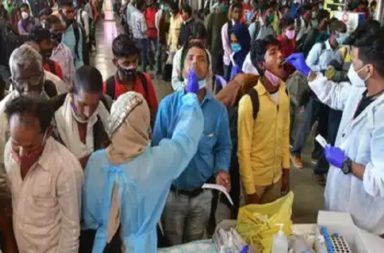The novel coronavirus disease (COVID-19) pandemic may undermine a quarter century’s progress in curbing child marriages and increase under-age pregnancies, a new report has warned. At least 2.5 million girl children are at risk of child marriage in the next two years because of the new coronavirus pandemic. According to the report by international non-profit Save the Children, pegged an increase of 1 million in adolescent pregnancies for the year, 3% more than a year ago. Deepening poverty caused by the loss of livelihoods is likely to drive many families to marry off their daughters early.
Campaigners said the risks were exacerbated by the fact that schools were closed and organisations working to combat child marriage were finding it harder to operate during lockdowns. The pandemic is also making it more difficult for girls to access reproductive health services which could lead to a rise in teenage pregnancies and increased pressure to marry. Worldwide, an estimated 12 million girls are married every year before the age of 18 – nearly one girl every three seconds.
According to the report, the greatest number of child marriages is expected in South Asia, followed by West and Central Africa and Latin America and the Caribbean. The highest number of girls affected by the increased risk of adolescent pregnancy are likely to be in East and Southern Africa, followed by West and Central Africa, and Latin America and the Caribbean. A U.N. report last month predicted the pandemic could lead to an extra 13 million child marriages over the next decade.
In Asia, organisations are reporting that the forced unions have already begun, estimating tens of thousands are already affected – though hard data is yet to be collated. “There has been an increase in child marriages during this lockdown period. There is rampant unemployment, job loss. Families are barely able to make ends meet, so they think it’s best to get their young daughters married off,” says Rolee Singh who runs India’s “1 Step 2 Stop Child Marriage” campaign. “We have also seen children get married because the other party offers money or some kind of assistance in return. These families don’t understand the concept of trafficking – it’s a worrisome trend,” says activist Singh.
Girls Not Brides, a global partnership of 1,400 organisations working to end child marriage, said members were extremely worried. “People on the ground are saying this is looking bad. It’s likely we are going to see large numbers of child marriages,” said Girls Not Brides chief executive Faith Mwangi-Powell. “This is something I’ve heard from India, from Africa, from Latin America. Some are saying this could undo decades of work we’ve done to reduce child marriage.” She said school closures were a particular concern.





